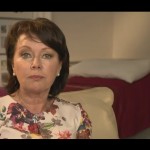As anyone who has ever suffered from depression will tell you recovery can take a long time. We
thought we would share a few ideas for tackling depression that do not involve medications.
It is worth mentioning that it is always a good idea to map out a journey from depression with a healthcare professional. It is worth noting that the ideas below are complimentary rather than an alternative to more conventional treatments such as medication or counselling.
1) Exercise. As you may know exercise releases endorphins in the body which in turn makes you feel better. Maybe try swimming or just go for a run.
2) Get organised. A regular routine can help you break out of some of the listlessness which can be caused by depression
3) Diet. Yes really. Fish is particular recommended especially ones high in omega 3 oils such as salmon. https://patienttalk.org/?p=917. You feel better after a salad than a burger!
4) Get outside. Not just for exercise. Regular exposure to sunlight means raised Vitamin D levels which helps improve your mood. You can read up on it here https://patienttalk.org/?p=300
5) Improve your sleep patterns. Get eight hours plus a night can really help your mood. Maybe go to bed a few hours earlier or even try a restful camomile tea.
These are just a few simple ideas. Can you add to them?
It would be great if you could use the comments box below to add your thoughts and ideas as to lifestyle changes which can help beat the blues!
PS You may find our previous blog on St John’s Wort of interest https://patienttalk.org/?p=874




